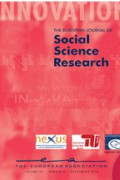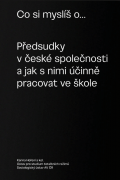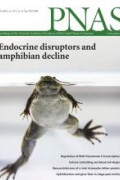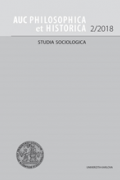This study examines the role of cognitive skills on labor market outcomes in 14 developed countries. In contrast to standard Mincer-type regressions, we utilize a structuralmodeling approach that can take into account different types of skills on different economic outcomes. The results, based on data from the OECD PIAAC project, provide
Topic: economics, wages and incomes, social inequalities, education
In recent public discussions in Europe on the advantages of mixed-gender teams, many voices have been calling for more men in primary education. The urgent need to get more male teachers into primary education exists also in the Czech Republic. In a highly feminised environment, the prevailing view is that we need more male role models and male teachers who are already in kindergartens and elementary schools are presented as unique and exceptional.
Topic: gender, public policy, education
This article contributes to the understanding of how first-time buyers and their parents form attachments to housing debt. Interviews, carried out in the Czech Republic, with 40 first-time homebuyers and 10 with their parents were used to identify multiple layers of debt performativity. These layers consist of statements expressing moral evaluations and emotions; calculative and cognitive devices; and references to practices.
Topic: housing, identity, intergenerational relations
Abstract: Attitudes towards women in politics and gender culture in general have implicationsfor the status of women in politics and their descriptive representation. In the paper weask what attitudes people have in the Czech Republic towards women in politics and theirdescriptive representation, how these attitudes have changed across time, and what factorsare associated with these changes. We draw mainly on a survey carried out in 2014, and we
Topic: gender
The paper reviews recent theoretical discussions on education for sustainable development and competence based teaching, and relates them to the international policy processes of the Sustainable Development Goals implementation where ‘the knowledge and skills needed to promote sustainable development’ are expressed in the SDG 4.7.
Topic: education, životní prostředí
This paper investigates the role of civic culture and other political factors in support for democracy in the Czech Republic during the decade following EU accession. The goal is to assess the validity of civic virtue theory and to compare the impact of these factors on affective legitimacy using the ISSP Citizenship modules 2004 and 2014.
Topic: trust/social cohesion, legitimacy, civil society, social capital
Drawing on fieldwork in the postsocialist Czech Republic, we explore the transformative processes of biomedicalization, both within and in relation to complementary and alternative medicine (CAM). We argue that it would be simplistic to understand evidence of these processes in CAM as a sign that CAM has fallen prey to biomedicine. Instead, we show how particular CAM practices play a groundbreaking role in shaping developments in contemporary health care.
Topic: sociology of science, health
Topic: politics (and political attitudes)
Topic: value orientations, education
Kniha shrnuje výsledky výzkumu o postojích české společnosti k Romům a Židům a jak může škola tyto postoje ovlivňovat u žáků a studentů. Na základě rozhovorů s lektory a učiteli o tom, jak fungují ve třídách vzdělávací programy o menšinách, přináší autoři doporučení ke zlepšení výuky k toleranci. Publikace také přináší přehled o dostupných vzdělávacích materiálech a institucionálním rámci vzdělávání v ČR.
Topic: education
Topic: politics (and political attitudes)
Topic: politics (and political attitudes)
Topic: politics (and political attitudes)
Topic: politics (and political attitudes)
We focus on the role of within-family socialisation and the relationship between socialisation and resource transfers in the intergenerational transmission of housing preferences, the formation of familial housing attitudes and thus the reproduction of a normative housing tenure ladder across generations in Czech society. We show that resource transfers and the within-family socialisation of housing preferences, including preferences concerning housing tenure, are closely interconnected.
Topic: housing, human relations
Topic: economics
Subjective well-being is usually studied with respect to marital and occupational status, income or subjective health. Conversely, research examining the relationship between this phenomenon and crime-related factors is still relatively limited. This study therefore aims to extend the current knowledge in this area.
Topic: gender, crime
Topic: religion and religiosity
Topic: sociology of science
Being a chaplain in the Czech Republic is an uncertain role. The country has a very low rate of religiosity and little trust in churches. The chaplains who provide spiritual care in the army, hospitals, and prisons face several sources of uncertainty: they must negotiate their position within the institutional structure; gain the acceptance of their clients, and often work with only little support.
Topic: religion and religiosity






Newsletter
Facebook
X
Tweets by SociologickyNewsletter